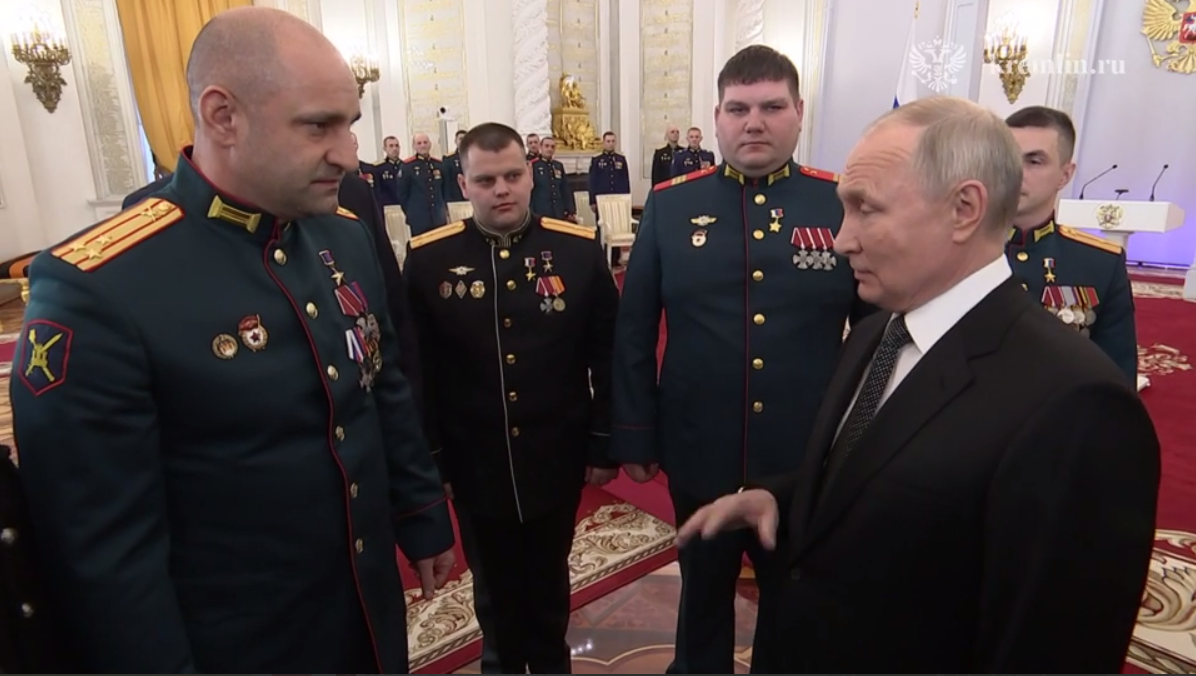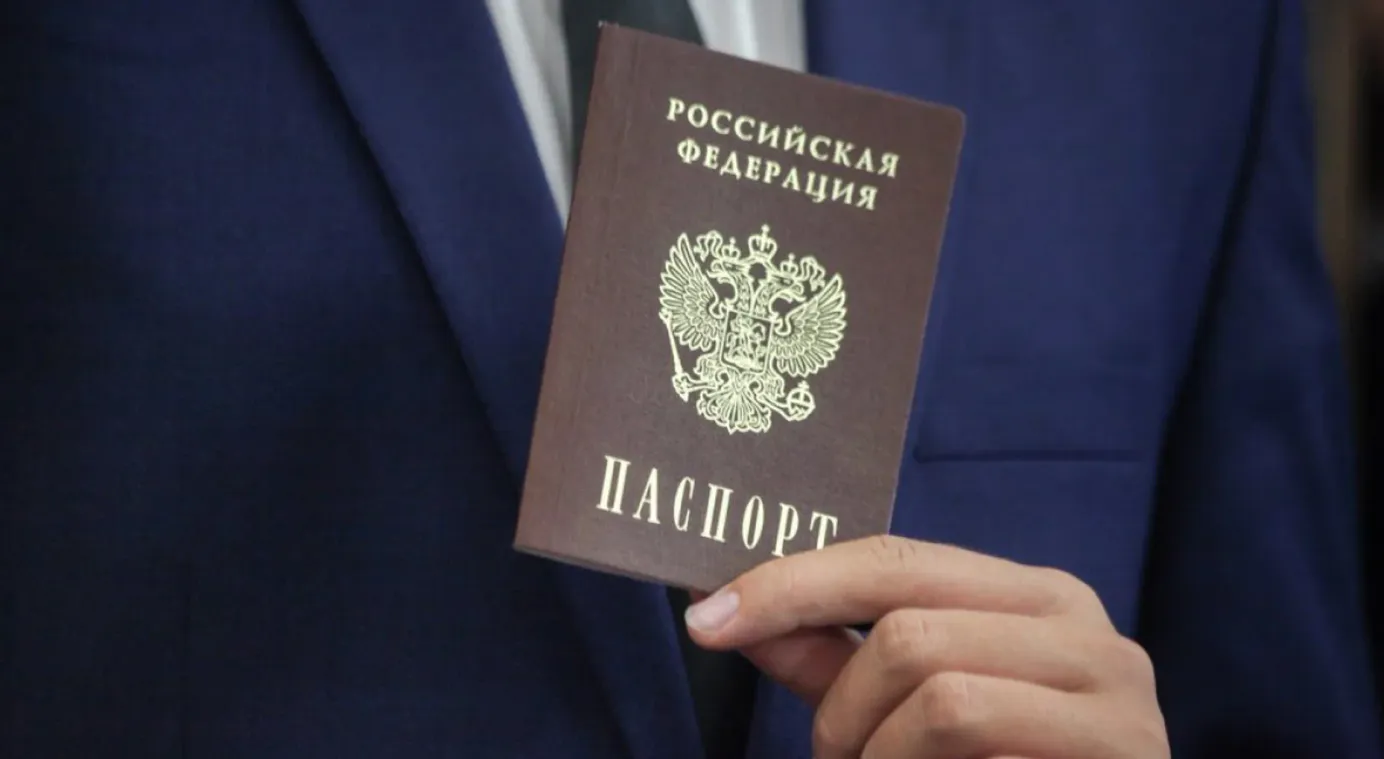
Surrounded by Donbas veterans, Putin declares he will run for presidency again
Vladimir Putin has finally announced his candidacy for next year’s presidential election in a vote which the Federation Council has set for March 17, 2024. Putin officially launched his campaign at a meeting with “heroes of the war in Donbas,” an event seen by political analysts as symbolic. Putin is aiming to win at least 80% in next year’s ballot.
- In recent weeks, almost every one of Putin’s public engagements has been accompanied by hints that he will formally announce his candidacy in the near future. The announcement finally came at an event for soldiers who have been awarded the “Hero of Russia” medal, the country’s highest military honor. The official who posed the crucial question was Artyom Zhoga, parliamentary speaker of the so-called People’s Republic of Donetsk, one of the four Ukrainian regions that Russia claims to have annexed last year. After the ceremony he approached Putin and asked him to stand for re-election again. The president’s response was brief: “At different times, I had different thoughts. But now the time has come to make a decision. I will run for president.”
- Artyom Zhoga is a figure who symbolizes not only the importance of the war and what Moscow calls its “new territories'' for Russia, but also represents a continuity stretching back to 2014, the annexation of Crimea and the start of the war in eastern Ukraine. Zhoga’s son, Vladimir, was the driver for Arsen Pavlov, known by his nom de guerre “Motorola,” and hailed as one of the great heroes of the so-called Russian Spring of 2014. After Motorola’s death in 2016, Vladimir Zhoga took charge of his “Sparta” battalion. He was killed in the early days of the Russian invasion in 2022, leaving his father, Artyom Zhoga to take charge. Thus, Putin was not called to stand for re-election just by the speaker of a regional parliament in occupied Ukraine, but by a man best known as a pro-Russian militant in Donbas.
- Back in the summer, Meduza wrote that Putin’s aim for the election was to secure an 80% vote share. That target seems logical from the Kremlin’s point of view. In March 2018, he received 76.7% — anything below that, especially during the war, would be seen as a step backwards. Official polls also suggest a figure of around 80%. On the eve of Putin’s announcement, one of the two leading state pollsters, the Public Opinion Foundation, published a survey suggesting that every single one of Putin’s indicators had risen significantly in recent years. In 2019, only 33% were positive about the idea Putin could return for another term. A year ago that share had risen to 62% and has continued to climb, now at 70%. Naturally, the number of respondents who felt that Putin should step down as president and move to another role in government has fallen accordingly — from 33% to 15%. Those who think Putin should retire altogether fell from 23% to 8%, and those who believe Putin acts in their best interests rose from 52% to 67%.
- It remains unclear exactly who exactly will be allowed to run as Putin’s sparring partners in the election. Experts agree that the two systemic, or Kremlin-loyal, opposition parties will be involved in some form. The Communists are likely to nominate their 79-year-old leader Gennday Zyuganov for his fifth presidential election campaign. The Liberal Democrats (LDPR) are currently led by Leonid Slutsky, following the death of the outspoken Vladimir Zhirinovsky. The liberal Yabloko party will try to nominate its leader, Grigory Yavlinsky, who picked up 1.05% of the vote in 2018. But this time round, the Kremlin seems not to want Yavlinsky’s name on the ballot. Yavlinsky himself said he would run only if 10 million people signed a petition backing his candidacy — an unrealistic number. Political analyst Grigory Golosov said of the Kremlin’s strategy regarding other candidates: “It is scientifically established, and even without science the Kremlin had long understood, that any additional candidate, however pitiful, takes votes away from the leader. If the target was 70%, then having one ‘liberal’ candidate (however hopeless) would be entirely acceptable. If it’s 60%, you could allow more of them and provide an exciting campaign. But a target of 80% rules out this option. The only candidates will be those who cannot be left out.”
Why the world should care
Russia’s presidential election may seem like a formality, but it is nonetheless an extremely important event for the Kremlin. The symbolism and propaganda surrounding it will tell us a lot about how Putin views his next term in office.




